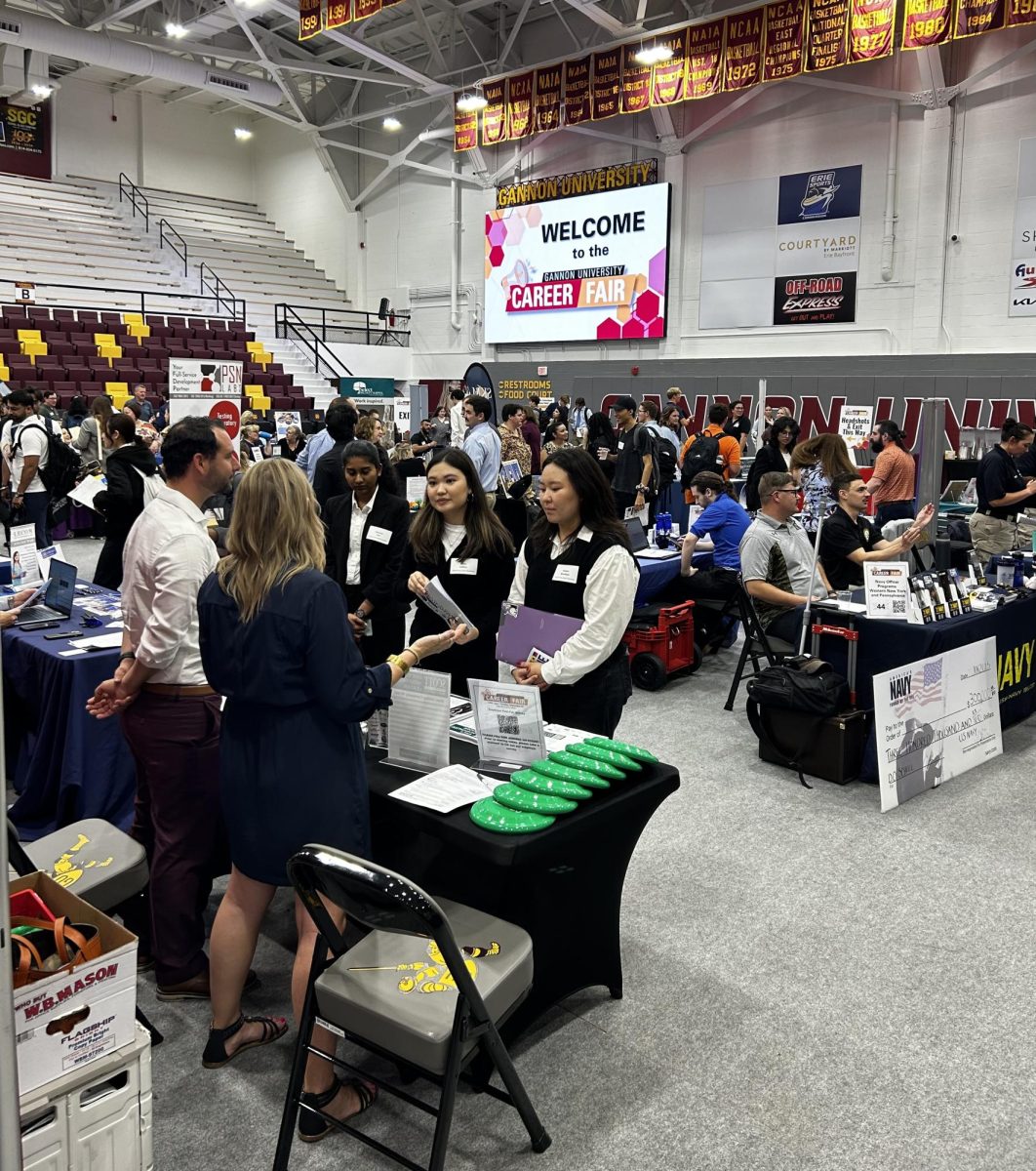“Dealing with the physicality of the past is something else and that is the attractive part of archaeology is that you are touching something that ancient people have touched.”
– Dr. Rachel Hallote
Last week Gannon students, faculty, and staff had the opportunity to hear and learn from Dr Rachel Hallote, a professor of history and archaeology at SUNY Purchase College. She teaches courses on Ancient history, Jewish history and is the author of several books and articles. Hallote was the first visitor of Gannon’s Fall Speaker Presentations.
Dr. Hallote took some time out of her schedule to teach and present her findings while studying and researching the history of the Ancient Near East.
Hallote emphasized her thoughts regarding the media in correlation to archaeology. More specifically, the media of the present and past has changed the way archaeology is displayed in the news. ‘It allows archaeology to be more relevant for the consumer.’
Archaeology is relevant in politics. As an example, she explains that even when building the foundations of a house, the area in which the space is built must be checked at an archaeological level. Archaeologists check the building location and if anything of historical significance is found, the entire site must be excavated before the builders can continue. In many areas this has become the law to ensure that history is preserved. According to Hallote, many construction companies have grown impatient due to the excavations time interference and expenses.
Politics is present within the history of war. Hallote touched on how many brutal and detrimental wars are the result of politics and have made major changes in the world today. She explained in depth on the incident that occurred in Syria. Members of Isis destroyed many of the archaeological sites in Syria in Northern Iraq. The items represented both pre-Islamic idolatry and western interest in Iraq and Syria. A well-known archaeologist, Khaled al-Asaad, was publicly murdered at the site where he spent most of his life’s work.
Gannon’s very own Dr. Suzanne Richard, a professor from the history, archaeology, and theology department had some input about the event itself as well as the ongoing issues of the media and archaeology.
Richard had this to say, “We know it’s going on; we see it in the news every day, Palestinians and Israelis are clashing together over the land, who owns the land…it’s all political now.”
On more current news Hallote included that Ukraine’s monuments and museums are at risk to vandalism.
She reflected that worldwide archaeology and ancient history are taken out of context to make conflict about current political concepts.
Richard gave her opinion on what students should be thinking following the event and why.
“It’s the humanities and it’s very much of the day. That’s what I tell all my students when I am talking about ancient history, when I’m talking about archaeology it impacts what’s going on today and that’s what she’s saying…we must learn from the past and know the past so that we don’t make the same mistakes.”
The lecture ended with feedback and resulted in many questions from students and faculty. Many students were eager to ask the professor about the varying topics that Hallote had discussed. Some included inquiries about the dig sites as well as questions regarding the ongoing conflict of the media and archaeology.
When asked what advice she had for students regarding the archaeology field Hallote replied, “You should do it once because you can get a new perspective about life and the past.”






